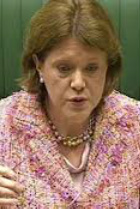The hacking trial: commentary
Journalism uncovered the scandal, the courts delivered justice. The law wonThursday 26 June, 2014
What a scandal! To use so many resources and spend so much money on hounding journalists - the guardians of democracy - for three years. And for what? Britain's most expensive trial ends with a single conviction. What a farce. There has been an air of indignation in the Tory Press for the past couple of days about the phone hacking trial, with the Sun and Telegraph both suggesting that the "not guilty" verdicts returned for five defendants demonstrated that the entire investigation was misconceived. We've seen the same response to the trials of Nigel Evans, William Roache, Michael Le Vell and others. The tab headlines scream: "Why were they ever brought to court?" while the broadsheets take the "CPS under fire" approach. The implication is that it's wrong for innocent soap stars and hacks to be put in front of a jury. Have they thought that through? Would we wish to live in a society where every trial ended with a conviction? A society where once you were charged you knew there was no hope; a society where the guilty remain at liberty because there isn't a cast iron, padlocks and chains case against them? The police investigations did get out of hand; they were out of proportion with the suspected crimes; the costs were astronomical. More officers investigating journalists than chasing murderers and those scourges of the modern media, paedophiles. As people kept saying, "nobody died" (although in fact at least one person did: the trial was told that one man killed himself largely because of what had been written about his murdered sister). How was this allowed to happen? We are where we are for three key reasons:
At the beginning of 2011, no one - probably not even Nick Davies - had any idea of the extent of the malpractice. We thought he was exaggerating when he wrote about "hundreds" of hacking "victims" (I still feel that an over-emotive word). Who could have imagined that when the police finally started to look into it properly that there would be thousands?
If you are unravelling a ball of wool and you reach a knot, you can grab the scissors, stop where you are and be content with the yarn on the floor. Or you can untie it and keep going in the hope of getting the whole thing sorted. The trouble is, there's no way of knowing what else you might find. The police encountered many tangles and loose threads, but what were they to do? They were already in trouble for giving up at the first knot last time, there'd be hell to pay if they did that again. Should they turn a blind eye to a certain level of criminality? Who was going to call a halt? And what about the rest of the Press, the Mirror, Mail and Express groups? As a journalist, I felt the investigations were over the top, as a News International employee, I felt aggrieved that we seemed to be the only targets. Did anyone seriously think that only the evil Murdoch papers used these tactics? Leveson was supposed to be an inquiry into the culture and regulation of the Press, not of News International. But beyond asking assorted celebs about their experiences - "oh, it was terrible, my lord, I felt violated" - and editors about their views on hacking - "oh, it's terrible, my lord, we'd never countenance it" - it was essentially Murdoch on Trial I recall a document emerging in 2011 with a sort of league table of private detective use. Every paper was there, the Guardian and Times included, and the Mail was way out in front. The investigators may have been hired for completely legitimate reasons, but in this climate the police would have been justified in checking every contract. With public expenditure already in the tens of millions, the big fish were brought to trial last October. By March Mr Justice Saunders was saying that it looked as though it would become the most expensive trial in British history. Today much has been made of the magic £100m figure - but the cost to the public purse has been only a fraction of that. The vast bulk, at least £60m, has been spent by News Corp in providing lawyers for six of the seven defendants. The seventh, Clive Goodman, was on legal aid that totalled about £110,000. It is also disingenuous to talk about the expenditure of £100m to secure one conviction, since another five men have pleaded guilty - one of whom turned Queen's evidence. Far from being £100m for one, it is a case of £33m for six (so far). And, remember, none of this money would have been spent if Coulson hadn't encouraged a culture of hacking and then lied through his teeth for five years, clinging to the myth that Goodman, the royal editor jailed in 2007 for listening into Prince William's voicemail, was "one rogue reporter". Such irony that the only man in the dock for the past eight months not to be supported by News UK was Goodman, the company's fall guy, the man Coulson hung out to dry. Nor would the costs have been so high if the police had done their job in the first place. You could as well blame Clarence House for making the initial complaint about William's dodgy knee as over-zealous police and witch-hunting politicians for the spiralling bill. It is right that what was going on has been exposed; it is also right that the Press should have a better system of regulation. But SubScribe remains convinced that there was no need for Leveson.
Cameron had been in politics long enough to know that whenever anything goes wrong the Opposition and lobbyists will jump up and demand "a full public inquiry". The sensible response is to keep the £5m in the bank for a rainier day. Nick Davies's disclosures were enough to activate a proper police investigation and, entertaining though it was, we didn't need months of the Brian and Bob Show to tell us that the PCC wasn't up to the job. Newspaper publishers should have worked that out for themselves and if they didn't, ministers could have told the industry to sort itself out "or else". Hacked Off is now using this trial to continue its rearguard action against the new regulator Ipso, with Brian Cathcart declaring that this was a case not of one rotten apple, but of the whole orchard. In fact the trial proved almost the opposite. There is no suggestion or evidence that every reporter across the News of the World was hacking willy-nilly. The activity seems to have been concentrated on a clutch of people on the newsdesk and in the "investigations unit"; only three reporters have been charged with phone hacking - Goodman, Neville Thurlbeck and Dan Evans - the others are, or were, executives. Nor did it show that the industry was clinging to the "same old, same old" with Ipso. The PCC did not have the power to initiate investigations, it could only respond to complaints; Ipso will be able to take action unilaterally and impose fines of up to £1m rather than administer a public slap on the wrist. And, finally, far from making it obvious that Parliament needed to get involved, Coulson's conviction and the guilty pleas of the five men who will be sentenced with him on Friday week demonstrated the opposite. The scandal was uncovered by journalism, the police belatedly investigated and the courts delivered justice. The existing law of the land worked. |
|
The hacking trial
The costs
£19m Operation Weeting into phone hacking £10m Operation Elveden into suspected corrupt payments to officials £2.7m Operation Tuleta into computer hacking £1.75m Old Bailey and prosecution fees £60m* Defence fees for Coulson, Brooks, Kuttner, Carter, Hanna and Brooks £110k* legal aid for Clive Goodman *Estimated bill for News Corp *estimate |
Please sign up for SubScribe updates
(no spam, no more than one every week or two)
|
|
|









